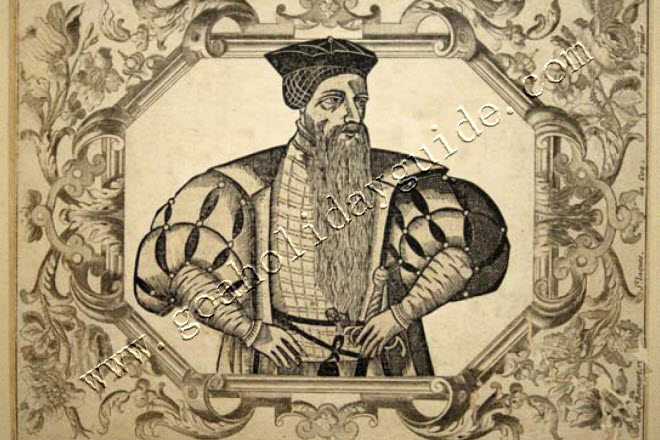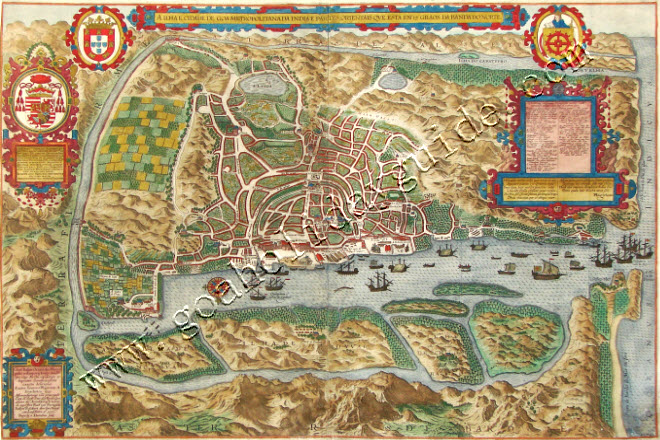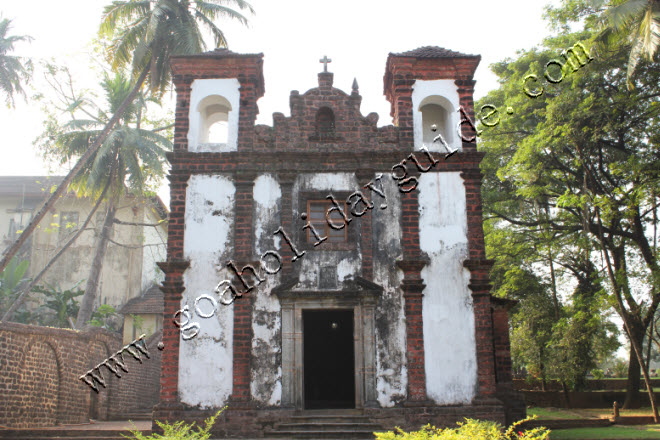Conquest Of Goa By The Portuguese
Post Conquest
Albuquerque immediately organized the administration of the city, heard grievances of the people, gave assurances of maintenance of their customs, lowered taxes and minted fresh Portuguese coins. The day he took Goa for good, was 25th November 1510, the f
The Arrival Of The Portuguese To India
The advent of Portuguese rule in India began in 1498, when Vasco da Gama rounded the Cape of Good Hope and landed at Calicut(Kozhikode) on the Malabar coast marking the advent of Europeans into India. The Portuguese arrived as Merchants with the intention of setting up a colony and therefore gaining control of the spice trade from other European powers after all other land routes to India had been closed by the Ottoman Turks. They also had the ostensible aim of spreading the Christian faith and taking back lands from the Muslims, their sworn enemies back in Europe.
The first Portuguese viceroy was appointed in the person of D. Francisco de Almeida, to build factories and forts at Anjdiva, off the coast of Karwar and Cannanore in Kerala and develop ties with the emperor of Vijayanagar which was done effectively.
The Portuguese, as a matter of fact appeared to have been so organized in their operations, that they defeated the combined fleets of Egypt and Gujarat, which had attacked them, although with deadly casualties. They thus succeeded in wresting the control of the sea from the latter and went on to establish their naval supremacy in the Arabian sea.
Almeida was succeeded at the helm of Portuguese affairs in the East by Alfonso de Albuquerque(1509 - 1515), the ablest of the Portuguese commanders sent out to the East
The Conquest Of Goa By The Portuguese
Though the Portuguese were planning on conquering Goa which enjoys a strategic and commercial position of importance in the region from 1508 onwards, their plans finally crystallized in 1510 when they heard that some native Hindu Goan leaders and others had wished to invite them to capture it and free its people from the allegedly tyrannical rule of the Muslim Turkish and Rumi officers of the Adil Shahi regime. A meeting with Timayya, their Konkani linguistic relative, who was the naval commander of the Vijayanagar fleet at Honnawar, gave the final stamp of approval on the latters moves in this direction.
The portuguese fleet sailed up the Mandovi river with Timayya in Tow on 1st March 1510 and stormed the fortress of Panaji. They then proceeded upriver and took the caital city of Goa (Old Goa) as the garrison defending it had fled on the same day.
Temporary Loss And Recapture By The Portuguese
The successor of Yousef Adil Shah, Ismael Adil Shah, did not take the loss of Goa lying down. He made preparations to capture Goa from the Portuguese. He took recourse to diplomacy to begin with, then sent his envoys to warn Albuquerque of the great might of the Adil Shahi Army and the help they expected from the local Muslim ruler for an attack on Goa. While these negotiations, were kept alive, the Adil Shahi forces in a surprise move attacked Goa at different points and put the alarmed Portuguese to flight in May in 1510.
Albuquerque, caught unawares, reacted by setting fire to the city and then retreated in Good time to his fleet which had in the meanwhile sailed down the Mandovi and was anchored off the fortress of Panaji near the mouth of the river, its escape being blocked by the sandbar at the mouth of the Mandovi. In the meanwhile Adil Shah buttressed his defenses in Goa and went on harassing the Portuguese by pounding their fleet in the Mandovi river from Panaji. Albuquerque retaliated successfully, although with considerable casualties in his rank.
Acute shortage of provisions, illness and a state of siege forced Albuquerque to sail out to sea due to the oncoming intensive monsoons in Goa. Albuquerque rested on the Anjdiv island off Karwar, preparing for a second attempt to retake Goa. He attacked Goa again on the 25th of November in 1510. He was given a rousing welcome by the locals. Ismael Ali kept up the pressure on Goa, invading it once more while albuquerque was away in 1511 to capture Malacca. Albuquerque returned swiftly and expelled his forces from Goa.
The victories increased Portuguese prestige and the sultan of Gujarat, Zamorin of Calicut and the Emperor of Vijaynagar sought close ties with the Portuguese. Goa became the Centre of Trade for the whole east, as all ships of the world crossing these areas made port calls at Goa before proceeding onwards towards the far east. Trade in Goa thus bloomed especially with respect to the horse trade and Goa became rich with taxes on these traded goods.


